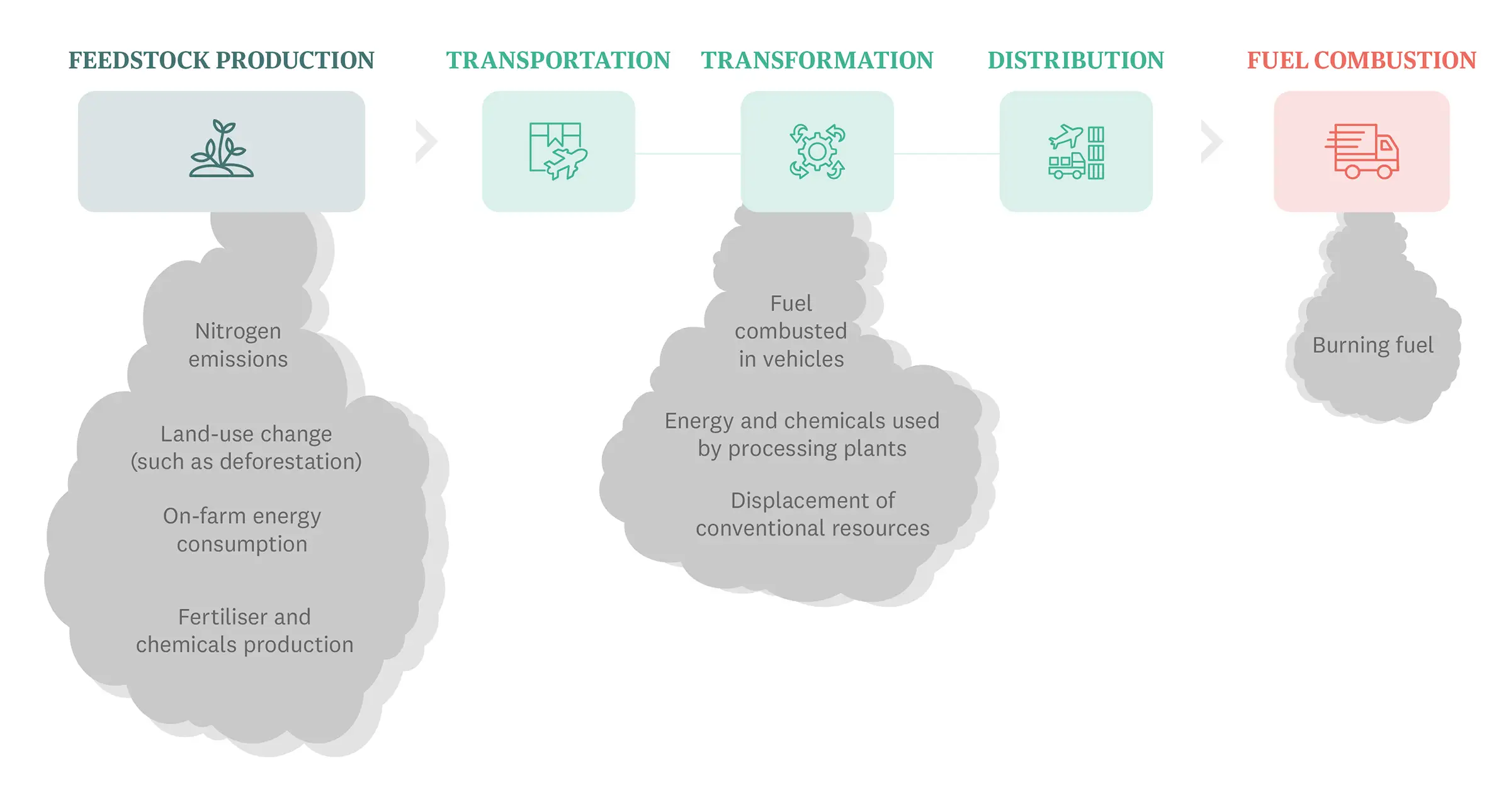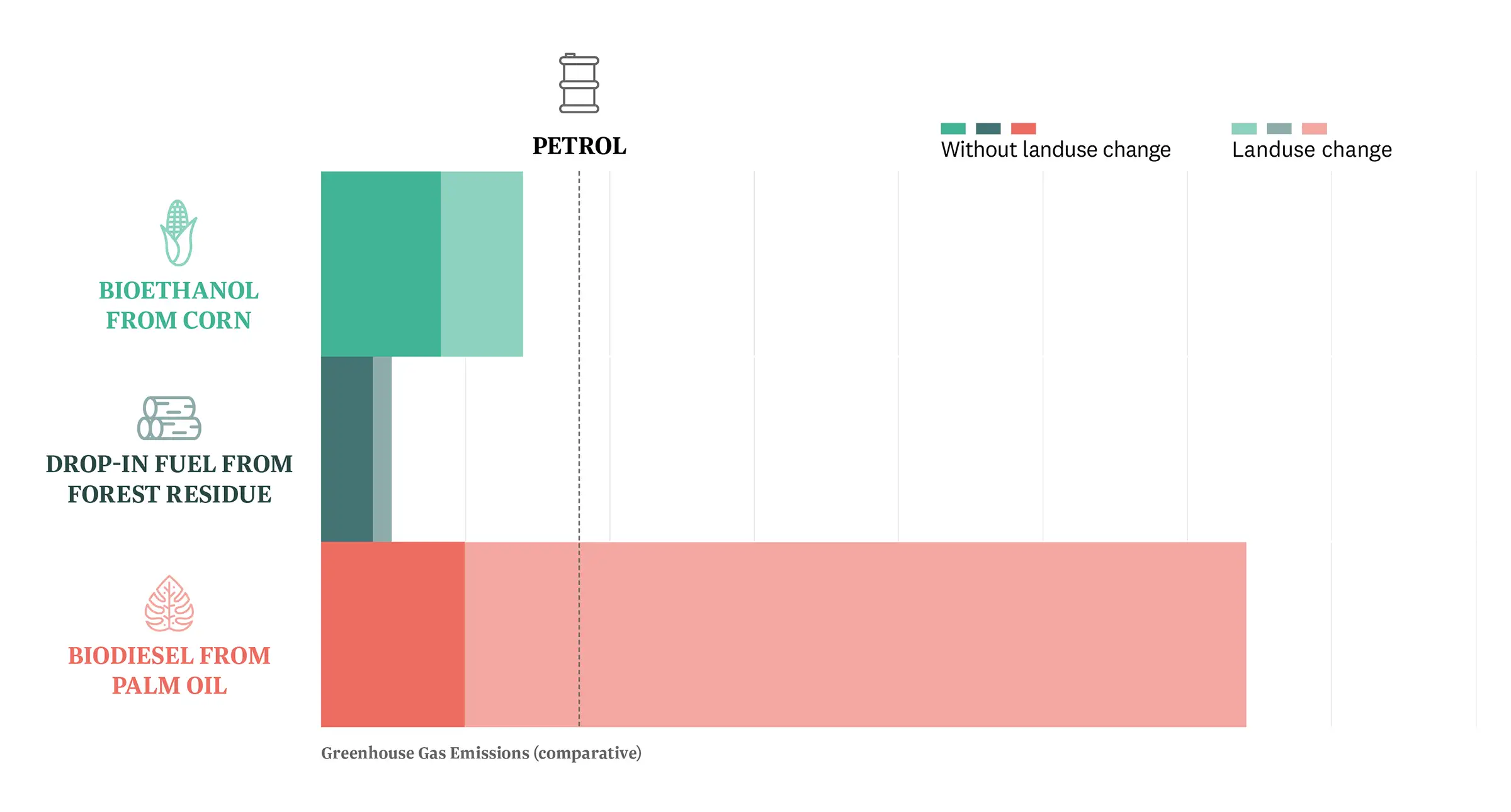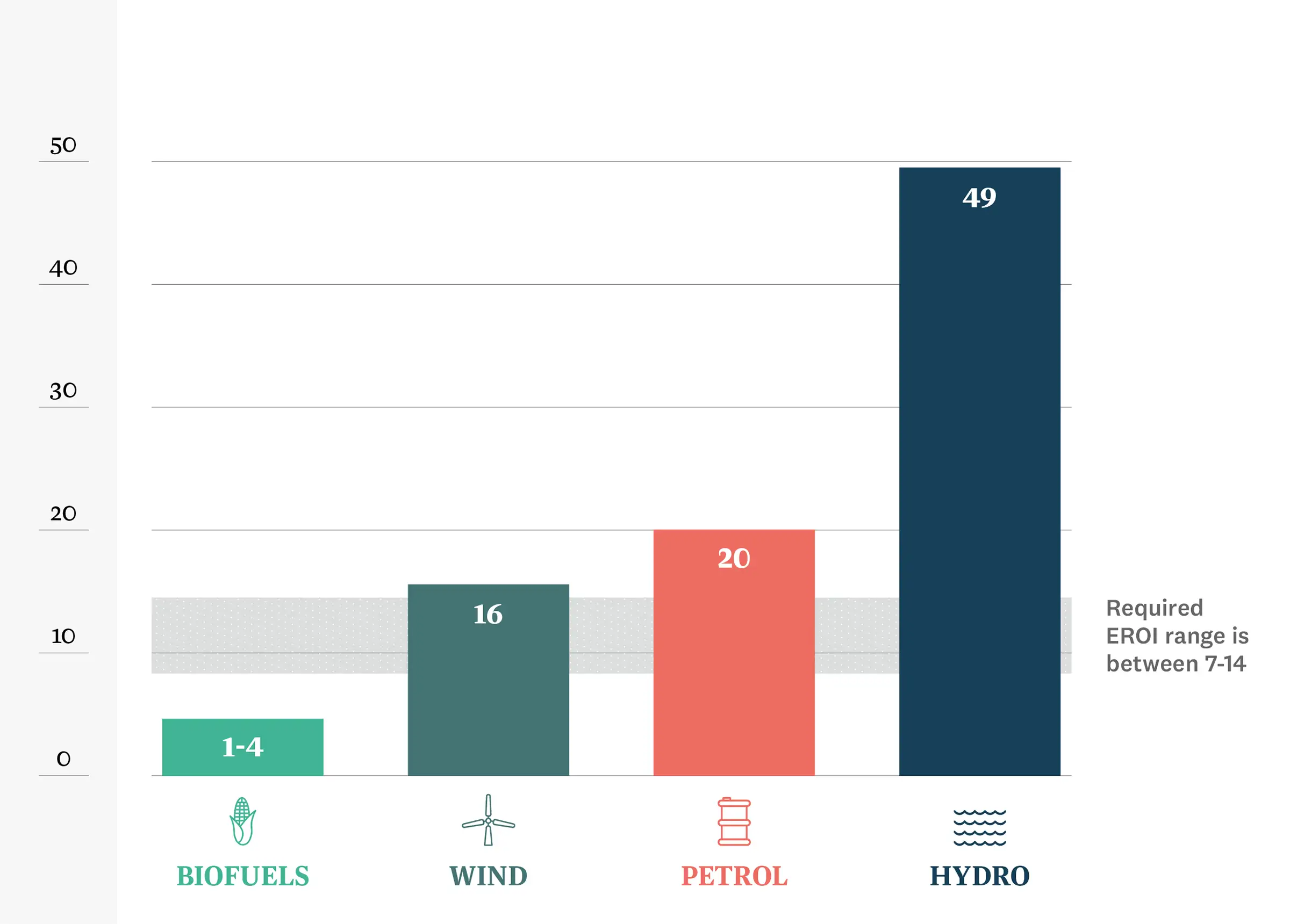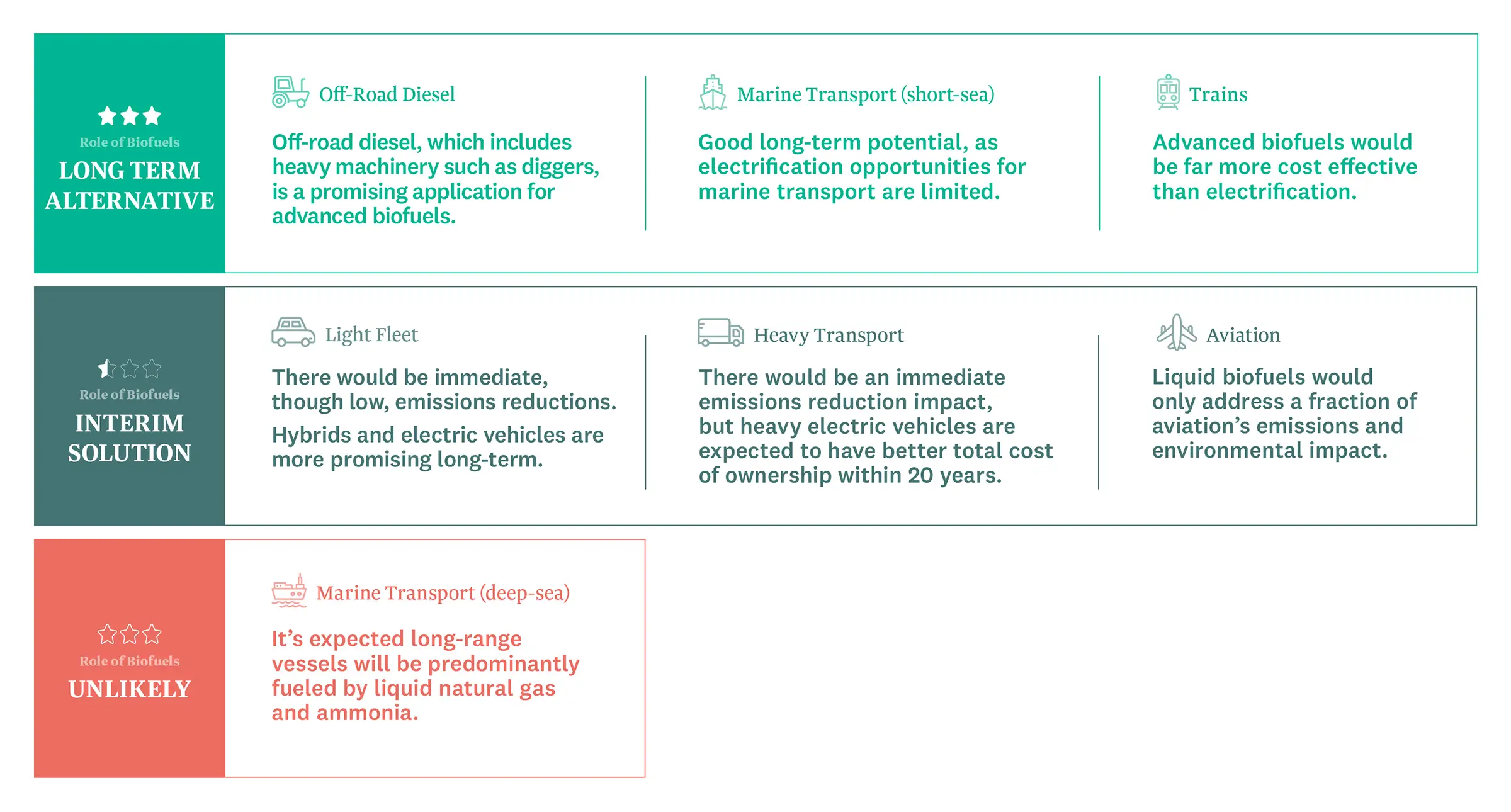EECA commissioned Sapere to prepare an independent report to gain an overview of the role liquid biofuels could play in decarbonising New Zealand’s transport sector.
At its heart, the biofuels discussion is about emissions reduction. All biofuels should be judged by their emissions reduction potential – and not all biofuels are created equal.
The transport sector emits over 21% of New Zealand’s greenhouse gas emissions, and continues to grow. As New Zealand tackles its goal of reaching net-zero emissions by 2050, decarbonising transport is vital.
Among the suite of low-emissions options to explore, EECA sought to understand:
- What is the potential role of liquid biofuels in the mix of solutions to transition to net-zero?
- Which liquid biofuels might be relevant for NZ transition?
- What uses of biofuels are promising for New Zealand’s transition?
- What are the outstanding questions and risks to consider before betting on biofuels?
Therefore, a holistic approach, looking at life-cycle emissions, blending limits, technological readiness, and market availability, is vital to the discussion.
All biofuels should be judged by their emissions reduction potential - and not all biofuels are created equal.
Lifecycle emissions vary from one fuel to another
The purpose of biofuel use is emissions reduction, so it must be assessed on a case-by-case basis, from its feedstock, through its processing and transportation, through to final use.

Emissions depend largely on the source
Lifecycle emissions vary significantly from one biofuel to another. This mainly depends on the feedstock used and associated land use change, such as deforestation.

Biofuels can be classified in two broad categories
Conventional biofuels
Made from edible feedstock, we know how to produce them at scale today, but they need to be blended with fossil fuels to be used. Therefore their emission reduction potential is limited (1 to 6%).
Advanced biofuels
Made from more sustainable feedstock, such as wood residue, their emissions reduction potential is much larger. However, the technology is not mature yet, and the amount of investments to make it happen at scale would require a worldwide effort.
No such thing as a silver bullet
For an energy source to be useful, the energy return on investment (EROI) needs to be above a range of 7 to 14. SCION estimates that the average EROI of corn ethanol is in the range of 2.6 to 2.8. Liquid biofuels’ EROI can range from less than 1 to 4 for more productive feedstock.

What does this mean for New Zealand's transition to net-zero?
EECA's view
Based on the insights we have today, advanced biofuels will have a role in the long term, while conventional biofuels could be an interim solution.

Read more about biofuel's potential across different uses
What about domestic production?
Feedstocks are globally tradable commodities, as are biofuels. This can therefore create a complete disconnect between local production and local availability.
New investments would be hard to justify for conventional biofuels: the blending requirement would reinforce the lock-in with fossil fuels.
For advanced biofuels, there might be a case to make. However, it will need to factor the technical challenges, the amount of investments required, and the time it will take for this opportunity to deliver at scale.
We should be careful about relying too much on a distant opportunity and invest too much resources in a long-term bet if it is at the detriment of solutions available today.
There might be more valuable (such as chemicals) or efficient (such as direct combustion for process heat) uses of wood than the production of liquid biofuels. A national discussion is needed on what are the priority uses of this limited resource.
For conventional biofuels:
- Investments are likely to be hard to justify
- They are a short term “bridge” solution
- They reinforce fossil fuel use because of blending requirements
- New Zealand has a limited competitive advantage
For advanced biofuels:
- There might be a case, but...
- The technical challenge is real
- High risk, long term opportunity
- Feedstock uses need to be prioritised
Liquid Biofuel Research Report
By assessing biofuels carefully on their emissions reduction potential, technological readiness and their best-use applications, we can ensure they play an effective role in New Zealand’s net-zero transition.


